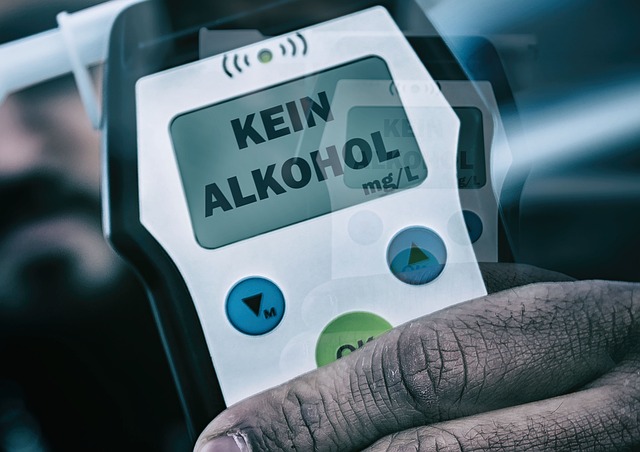Mental health conditions can severely affect driving, leading to increased accidents due to distraction and delayed reactions. Advanced vehicle safety features like automatic emergency braking, lane-keeping assist, and adaptive cruise control mitigate these risks and provide evidence of driver mental states for DUI law compliance. While ADAS help, proper mental health management is crucial. DUI laws aim to enhance safety but must consider mental health implications, with stricter penalties for impaired drivers. Innovative technologies monitor driving behavior, offer real-time assistance, and alert authorities if signs of impairment are detected, ensuring safer choices on the road.
Mental health plays a significant role in driving safety, often overlooked yet critical. This article delves into the intricate relationship between mental well-being and responsible driving, exploring key aspects that impact road safety. We examine common mental health conditions affecting decision-making abilities, highlighting the importance of understanding their symptoms. Furthermore, it discusses how vehicle safety features act as a lifeline for mentally distressed drivers, and analyzes DUI laws in light of mental health concerns. Finally, we explore technology’s role in monitoring and assisting these drivers, while promoting awareness and support for their well-being on the road.
- Understanding the Impact of Mental Health on Driving
- Common Mental Health Conditions and Their Effects on Decision-Making
- Vehicle Safety Features: A Lifeline for Safe Driving
- DUI Laws and Their Relationship with Mental Health
- The Role of Technology in Monitoring and Assisting Mentally Distressed Drivers
- Promoting Awareness and Support for Mental Health Drivers
Understanding the Impact of Mental Health on Driving

Mental health plays a significant role in driving safely, often overlooked yet crucial. Conditions like anxiety, depression, or PTSD can impact a person’s ability to make quick decisions and react appropriately while behind the wheel. These mental states may lead to distracted driving, delayed reaction times, and impaired judgment, posing risks not only to the driver but also to other road users. Understanding these impacts is vital for fostering vehicle safety features that cater to mental health needs and adhere to DUI law.
Various vehicle safety features can contribute to enhancing the driving experience for those with mental health conditions. Adaptive cruise control, lane-keeping assist, and automatic emergency braking are examples of technologies designed to mitigate driver distraction and reduce the likelihood of accidents. Additionally, state-of-the-art in-vehicle systems that monitor driver behavior can offer early warnings when detecting signs of fatigue or distress, enabling drivers to take necessary precautions. Such innovations not only promote road safety but also ensure compliance with DUI laws by providing tangible evidence of a driver’s mental state and decision-making capabilities.
Common Mental Health Conditions and Their Effects on Decision-Making

Mental health conditions can significantly impact an individual’s ability to make sound decisions while driving. Common disorders such as depression, anxiety, and PTSD may cause distractions, impair concentration, and affect reaction times, posing potential risks on the road. These conditions can lead to slow or erratic decision-making, especially in stressful situations, which could result in accidents.
Understanding these effects is crucial, given the integration of vehicle safety features and DUI (Driving Under the Influence) laws. Advanced driver-assistance systems (ADAS) like automatic emergency braking and lane-keeping assist are designed to mitigate risks associated with driver distraction or impaired judgment. However, for those struggling with mental health, these technologies may not always be effective without proper management and support. Adhering to local DUI laws, which often include stricter penalties for individuals with known mental health conditions, is essential to ensure vehicle safety and protect both the driver and others on the road.
Vehicle Safety Features: A Lifeline for Safe Driving

Modern vehicles are equipped with numerous safety features designed to protect drivers, passengers, and other road users. These advanced technologies play a pivotal role in promoting mental health while driving by minimizing risks and enhancing overall safety on the roads. Features such as automatic emergency braking, lane-keeping assist, and adaptive cruise control not only reduce accidents but also alleviate stress levels for drivers, especially during long or challenging drives.
By integrating these vehicle safety features, drivers can be more focused and alert, reducing the chances of distracted or impaired driving, which is a significant concern under the DUI law. These systems actively monitor and intervene in potentially hazardous situations, ensuring that mental fatigue or momentary lapses in judgment do not lead to accidents. As a result, they offer a lifeline for safe driving, fostering a healthier relationship between individuals and their vehicles.
DUI Laws and Their Relationship with Mental Health

DUI laws are designed to promote vehicle safety, but their effectiveness is deeply intertwined with mental health considerations. The relationship between these two factors is complex and significant. Mental health conditions can impair judgment, perception, and reaction time, making individuals more susceptible to operating a vehicle while under the influence. Conversely, strict DUI laws act as deterrents, aiming to discourage impaired driving by imposing severe penalties.
Vehicle safety features play a crucial role in this equation. Advanced technologies like automatic emergency braking, lane departure warnings, and improved airbags can mitigate risks for all drivers, including those struggling with mental health issues. By understanding the interplay between DUI laws and mental health, we can better equip individuals with the support they need to make safer choices on the road, leveraging both legislative measures and innovative vehicle safety features.
The Role of Technology in Monitoring and Assisting Mentally Distressed Drivers

Technology plays a pivotal role in enhancing vehicle safety, especially for those struggling with mental health issues. Advanced driver-assistance systems (ADAS) and connected car technologies can monitor driving behavior and provide real-time assistance to mentally distressed drivers. Features like adaptive cruise control, lane departure warning, and automatic emergency braking can help prevent accidents caused by distraction or disorientation.
In the context of DUI law, these technological interventions are invaluable. They can alert authorities or loved ones if a driver exhibits signs of impairment, allowing for timely intervention. Furthermore, some apps specifically focus on mental health and offer breathing exercises, meditation, and mood tracking during driving to ensure safe and calm operations. Integrating such tools with vehicle safety features creates a comprehensive support system, promoting responsible driving while addressing mental health concerns.
Promoting Awareness and Support for Mental Health Drivers

Mental health plays a significant role in ensuring safe driving practices. Promoting awareness and support for mental health drivers is crucial to reducing risks on the road. By recognizing the impact of conditions like anxiety, depression, or PTSD on cognitive abilities, we can foster an environment that encourages open conversations and access to appropriate care. This includes educating both the public and law enforcement about the signs and symptoms associated with mental health challenges, helping to differentiate between impaired driving due to substance abuse versus mental health issues.
Support systems are vital in empowering drivers with mental health concerns. Various organizations offer resources for those facing such struggles, promoting self-care strategies, and providing access to professional help. Additionally, advancements in vehicle safety features, such as collision avoidance systems and lane-keeping assist, can offer an extra layer of protection for individuals who may be experiencing difficulties. Familiarity with local DUI laws specific to mental health cases is essential; these laws often consider mitigating factors and provide alternative sentencing options, ensuring fair treatment while prioritizing public safety.
Mental health plays a significant role in driving safety, and addressing this issue requires a multifaceted approach. By understanding the impact of various mental health conditions on decision-making, we can implement strategies such as utilizing vehicle safety features to enhance protection. Additionally, strengthening DUI laws and leveraging technology for monitoring can ensure that mentally distressed drivers receive the support they need while keeping roads safe. Promoting awareness and fostering a supportive environment are crucial steps towards creating a more inclusive and secure driving experience for all.






